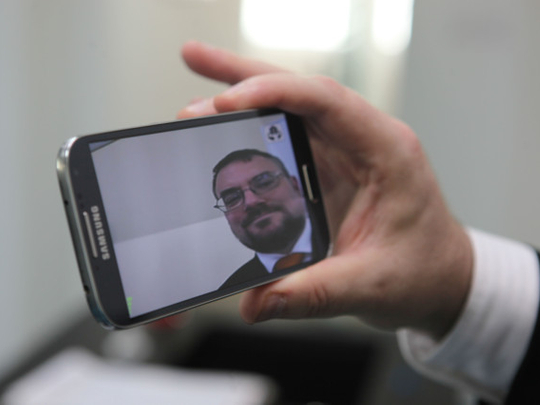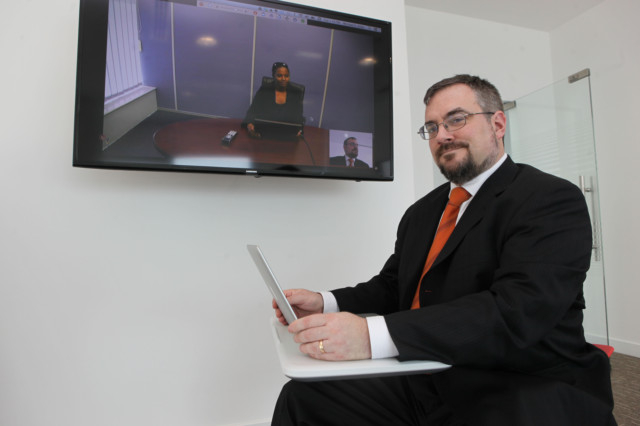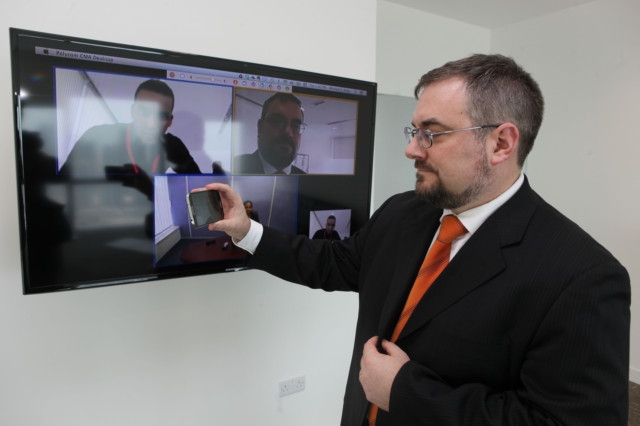
Imagine sitting in a class room in Dubai and being taught Mathematics by a video link to a teacher based in Hawaii! Technology enhanced learning is here to stay and Dubai-based International Horizons College offers a unique US curriculum based transfer programme where students get and opportunity to not only study with their faculty on premise but also connect with expert faculty from around the world via video conferencing. About 20 per cent of IHC’s courses are delivered online. These courses may or may not have synchronous video components. Dr MichaelE Dobe, the President of IHC and an educationist and Information Technology expert, spoke to Education about the numerous possibilities such technological aids have opened up for his students.
Could you elaborate on the academic model developed by IHC?
The International Horizons College (IHC) is licensed and accredited by the Ministry of Higher Education and Scientific Research (MHESR) and offers a US based system of education. Our 2+2 model which is effectively an Associate of Arts Degree in Liberal Arts for students from the Middle East, North Africa and South Asia (MENASA) region allows students to prepare themselves for a Bachelor degree course with two years of study in Dubai. Preparation starts in the freshmen year at IHC, when students work with academic counselors to develop a clear academic plan. The Academic Plan is based on students’ natural aptitude and interests. Students who achieve a good GPA of 3.0 or more get an opportunity to transfer to University of California (UC) system due to its partnership with IHC, where the students can complete their remaining two years in the discipline they chose for a Bachelor’s degree. In addition to UC system, students can also gain admission to the California State University (CSU) system of over 20 universities.
You have used the Polycom video conferencing system as an effective teaching and learning aid where students get the opportunity to have classes via video conferencing. Please elaborate on this?
Polycom video conference system is the global leader in open standards-based unified communications and collaboration and Du is their telecommunications partner. We have entered into an agreement with Du (that manages this Video Service) . It allows us to have full video conferencing solutions – we interview our teachers from US via vide conference, interact regularly with our guest speakers in Turkey, Pakistan and Moscow, saving time and money, have some lectures via video conference - without having to set up a full data centre – a technical and financially viable model. Besides that, our vide conferencing allows us to connect with experts from around the world.
Doesn’t a system like Polycom video solutions suit a corporate environment for conference meetings and interviews across the globe? Does this work well in case of a long- term engagement that an academic course requires with students?
We are using the video conferencing to enhance the learning experience. All of the classes are taught here but 20 per cent of our college lectures are delivered from the US via video conferencing. The students have access to online courses and data bases. Our academic model is about two years of study here and then transfer to the US (some colleges in California such as University of Berkley, UCLA, San Diego about 100 schools. The vide platform gives them a taste of US education in real time preparing them for the transfer.
What is the corner stone of Horizon College’s education philosophy?
It’s a unique concept for Dubai where we offer a strong liberal arts pathway where a student who has completed two years with us can get into a top business programme, a liberal arts programme, whatever he wishes. We offer post secondary undergraduate education where in 20 per cent of our education is delivered through distance learning via video conferencing. Polycom is used throughout the curriculum. It gives the student a chance to get supplemental instruction from a faculty member in let’s say from Hawaii. . I think we are adding something of value, for our student’s educational career and the professional career he or she wishes to pursue later.
What are the courses that are being taught?
We offer a Liberal arts education preparing students for success in the best liberal arts colleges in the US. All our faculty here is US educated. We are a strong college for Humanities, business, math and science. Students choose their subjects in the first two years and when they go abroad on transfer they choose what they want to major in. We decide to set up our centre here after examining the academic landscape in Dubai which had US type of curriculum.
Does video conferencing create a sort of impersonal distance between the learner and the one imparting the knowledge?
I would like to reiterate that we do not use video conferencing as a substitute to class room teaching. It is an additional teaching tool where we bring in other experts on the subject and encourage interactions with our students.
Is Horizon adopting the blended learning model which is really supposed to work well where some of the lectures happen via video conferencing and others in real time in real classrooms?
Our model is not so much a blended learning one, but I would call it a technology enhanced liberal arts model. Students have lectures here and have a personal interaction with our professors but they are also encouraged to their own independent work.
What is the final degree that a student gets and is it accredited and recognized by a parent university somewhere else or is it recognized by the UAE government?
The degree they get after two years of study here is - Associate of Art in Liberal Arts is accredited by the ministry of Higher Education and Scientific Research in the UAE. Then they transfer credits to US for a graduate degree in liberal Arts. This model that we have developed with Polycom and Du has save a lot of money on IT set up. We have used the money we saved to offer scholarships to our students. Students, if they wish, can also complete a business major or a pre-med or pre-engineering course, and obtain a bachelor's in those fields in the US at a top-ranked university.













